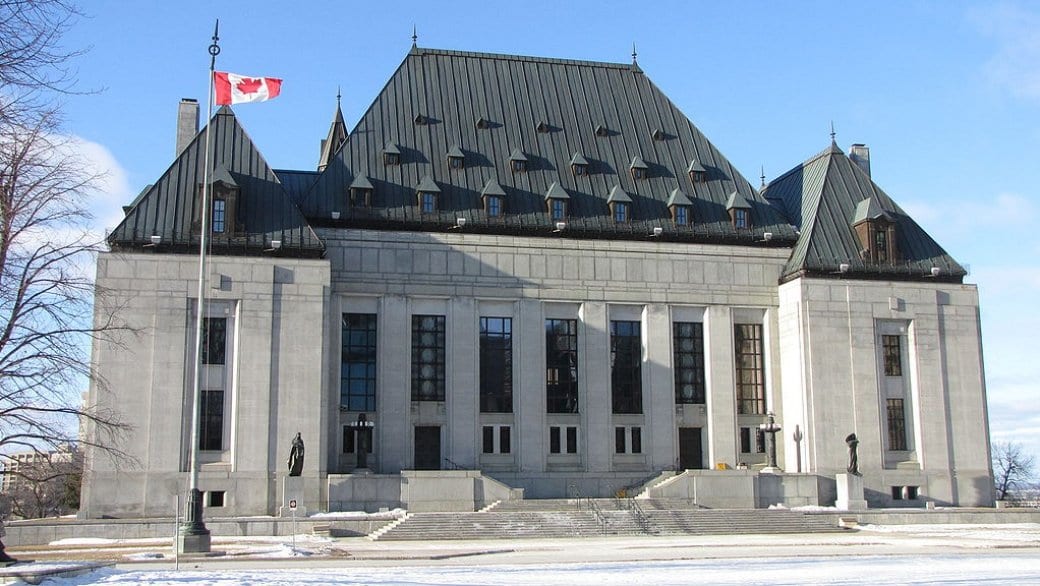Good news everyone. The Liberal government plans to finally strike out the last prohibitions on abortion services in Canada.
Yes, yes, I know, Justice Minister Jody Raybould-Wilson tabled Bill C-39 to remove the abortion prohibitions from the Criminal Code way back in March 2017. But as I wrote back then, they missed a few clauses in their repeal bill. Everyone makes oopsies! So they’ve tabled a new bill, C-51, which would repeal some other laws that ban advertising abortion services.
That section of C-51 didn’t get a lot of attention when it was tabled, because most of the focus was on provisions that codify already-in-practice rules around sexual assault, clarifying that unconscious people can’t give legal consent to sex.
That’s actually a good idea, which makes one wonder why it wasn’t included in C-39, which also included provisions related to rules of evidence in sexual assault cases. Are they just making this stuff up as they go along?
In fact, C-51 is the sixth bill the Liberals have brought forward since being elected to repeal or amend sections of the Criminal Code that have been found to violate the Charter of Rights and Freedoms. None of the bills have been controversial since they’re effectively codifying decisions and practices that are years, if not decades, old. And yet, only one of these bills has advanced past first reading in Parliament.
Let’s review:
- C-28: Gives judges discretion to reduce or waive victim surcharges if they would cause undue hardship to the offender. Mandatory charges have been found to violate the charter rights of the poor
- C-32: Repeals the sodomy provisions that imposed a discriminatory age of consent for anal sex and banned anal sex with multiple partners. Found unconstitutional in six provinces and territories
- C-38: Simply brings into force a bill related to trafficking exploited persons that was passed in the previous Parliament
- C-39: Repeals numerous other unconstitutional provisions, such as the ban on performing abortions, along with the sodomy ban and ensures that historical offences couldn’t be tried unless they would be crimes under the current Criminal Code. It also repeals the crime of publishing fake news, culpable homicide and vagrancy. Repeals some limits on credit for pre-trial custody and updates unconstitutional evidence rules related to drunk driving.
- C-46: Repeals and replaces the new evidence rules related to drunk driving contained in C-39 (yes, actually) with a new modernization of drunk-driving laws. This is the one that’s just advanced to second reading.
- C-51: Clarifies rules on what constitutes sexual consent; repeals bans on advertising abortion services, cures for STDs and impotence; repeals the ban on blasphemy, witchcraft, and “crime comics;” repeals a number of other overly-specific or outdated code provisions.
All of this is on top of an already busy legislative agenda which has included introducing the trans-rights bill, passing assisted dying legislation per the Supreme Court’s decision, ratifying the Arms Trade Treaty, and legalizing marijuana. All of those are significant public policy issues that deserve to have their own debates. But why is the justice agenda being crowded with a half-dozen bills that just aim to repeal dead legislation? Does the government have a strategy to actually pass any of these bills, or is it enough to grab the fun headlines that paint them as champions of women and minorities?
It’s a good thing that the government is finally tabling legislation to repeal these zombie laws. An unclear Criminal Code can lead to costly errors in justice. For example, the government reports that there were 69 charges under the sodomy law laid between 2014 and 2015 but no convictions. And errors in the application of sexual assault law rightly cause outrage with depressingly routine regularity. Which is why it’s so disheartening to think that the justice minister isn’t taking this seriously.
Because even with all these bills tabled so far, the Trudeau Liberals still haven’t touched all of the charter-offending sections of the Criminal Code.
Yes, C-51 carefully scrubs mentions of “crime comics” and ads for abortions, “curing venereal disease” and “restoring sexual virility” from the section on corrupting morals, but it leaves in place an entire rubric around obscenity that has been used to crack down free speech. It was obscenity, after all, that underpinned the decades-long legal battles of Little Sister’s bookstore against the Canada Border Service Agency.
While we will soon be able to place ads for abortion clinics and Viagra on this website without fear of running afoul of the law, it will still remain a crime in Canada to place an ad for a sex worker — an unconscionable attack on free speech. And we still haven’t seen the minister’s promised action on the sex work prohibition itself, which is in clear violation of the court’s ruling striking down our previous sex work laws. The government is similarly timid in repealing the Harper-era mandatory minimum sentences for drug and firearm offences, which the court has ruled are unconstitutional, and which disproportionately affects minority Canadians. Ensuring the Criminal Code respects our charter rights is an incredibly important undertaking. It’s time the government gave it the focused attention it deserves.


 Why you can trust Xtra
Why you can trust Xtra


